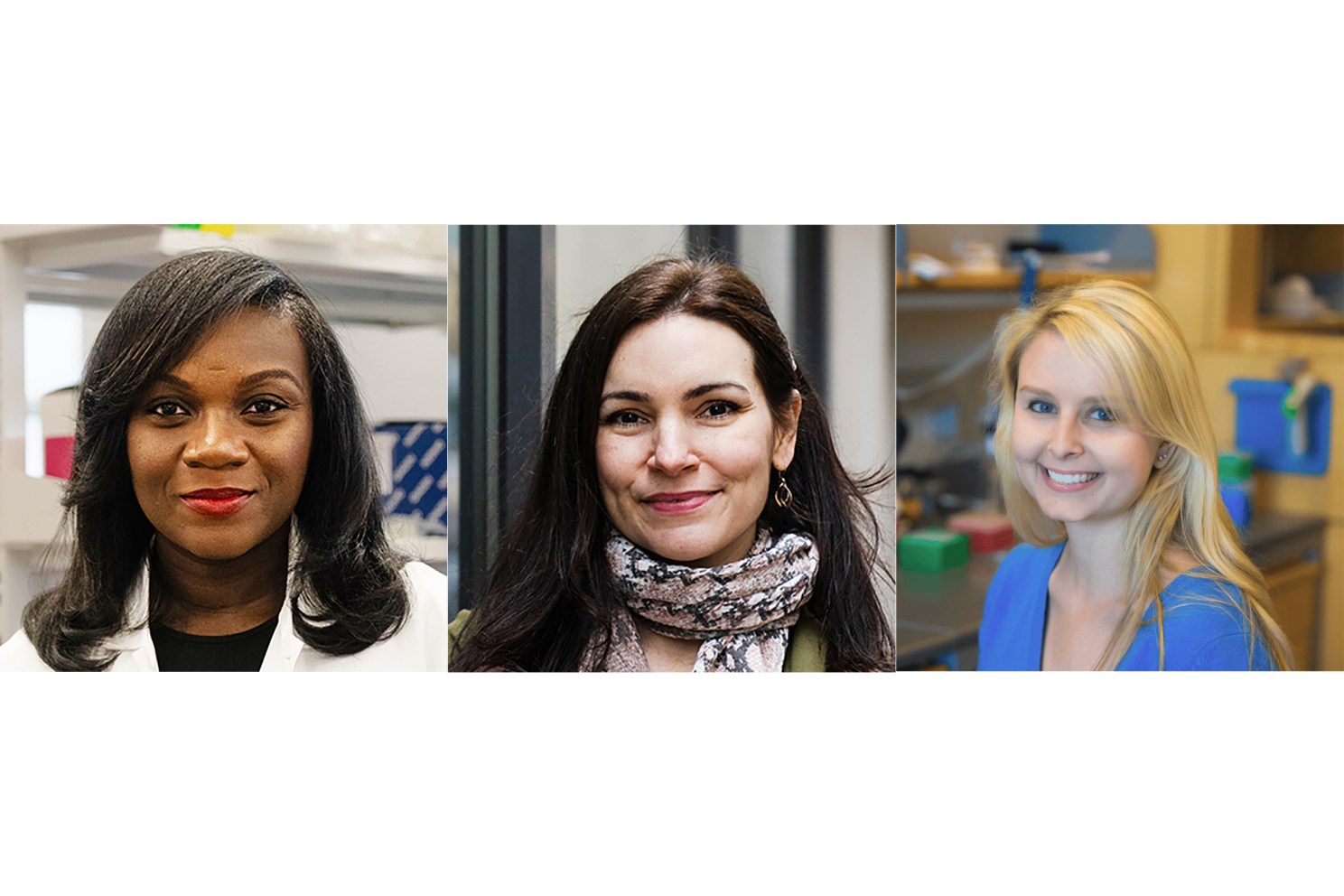Three Harvard faculty among 31 inaugural Freeman Hrabowski Scholars

Kizzmekia S. Corbett (from left), Josefina del Mármol, and Kara L. McKinley.
Three Harvard University faculty — Kizzmekia S. Corbett, Josefina del Mármol, and Kara L. McKinley — are among 31 new Freeman Hrabowski Scholars selected from across the U.S. by the Howard Hughes Medical Institute (HHMI). The program supports outstanding early career faculty in science who have potential to become leaders in their research fields and to create diverse and inclusive lab environments in which everyone can thrive.
Under the program, scholars will be appointed to a five-year term, renewable for a second five-year term after a successful progress evaluation. Each Scholar will receive up to $8.6 million over 10 years, including full salary, benefits, a research budget, and scientific equipment. In addition, they will participate in professional development to advance their leadership and mentorship skills.
Corbett, assistant professor of immunology and infectious diseases at Harvard T.H. Chan School of Public Health, helped develop the mRNA-based vaccine platform that enabled the creation of innovative and highly effective COVID-19 vaccines. The vaccines target the coronavirus’ spike protein, but, according to Corbett, this vaccine design is not a one-size-fits-all solution. She plans to continue exploring vaccine-induced immunity to the spike protein with the goal of informing universal coronavirus vaccine design.
del Mármol, assistant professor of biological chemistry and molecular pharmacology at Harvard Medical School, conducts research aimed at elucidating the structural and molecular mechanisms underlying the sense of smell, with the goal of understanding how olfactory receptors translate the chemical complexity of the environment into interpretable neuronal signals that enable robust odor-driven behavior in humans, animals, and other living things.
McKinley, assistant professor at Harvard’s Stem Cell and Regenerative Biology department, studies the biology of menstruation. During menstruation, the uterine lining — the endometrium — is extensively damaged and then rapidly rebuilt, and these processes continue month after month for decades. The McKinley lab uses the natural destruction-construction cycles of the endometrium to understand and improve how our bodies heal from damage. In addition, a central goal of the lab is to improve care for the hundreds of millions of people worldwide who have endometrial diseases or menstrual experiences that interfere with their quality of life.
HHMI named the new program in honor of Freeman A. Hrabowski III, president emeritus of the University of Maryland, Baltimore County, and a major force in increasing the number of scientists, engineers, and physicians from backgrounds underrepresented in science in the U.S.





